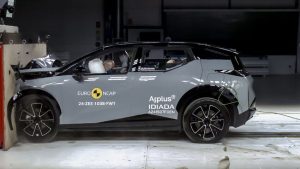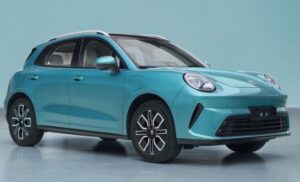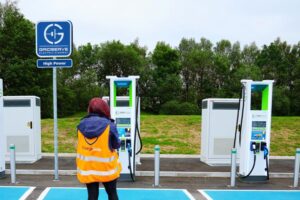Stellantis has cancelled its hydrogen fuel cell van program just months before the planned European launch, citing economic concerns and market challenges.
The automotive group – which owns Peugeot, Citroen, Vauxhall and Fiat – announced there’s “no prospect” of medium-term financial viability for its Pro One hydrogen program. The company will now focus entirely on all-electric and hybrid commercial vehicles.
Jean-Philippe Imparato, Stellantis’ chief operating officer for Europe, blamed infrastructure gaps, high investment costs and weak customer demand for the decision.
“In a context where the company is mobilising to respond to demanding CO2 regulations in Europe, Stellantis has decided to discontinue its hydrogen fuel cell technology development programme,” Imparato said.
He called hydrogen a “niche segment” with limited commercial prospects.
The Pro One project was nearly ready for launch. Series production of medium and large hydrogen vans was scheduled to begin this summer at facilities in France and Poland.
Stellantis officials said the cancellation won’t affect staffing levels at production sites. The research and development teams will shift to other projects instead.
Electric Van Market Dominance
Stellantis already leads Europe’s electric van market with offerings across small, medium and large segments. The company’s brands control significant market share in the all-electric light commercial vehicle space.
The group also supplies rebadged electric vans to Toyota for its Proace lineup. A similar supply agreement with Iveco will start soon.
Hydrogen remains attractive to some manufacturers, particularly for commercial vehicles where quick refueling and heavy payload capacity matter most. Toyota continues developing hydrogen fuel cell technology for heavy goods vehicles operating between its European factories.
The Japanese automaker also works on a hydrogen-powered Hilux pickup truck alongside its Mirai fuel cell car.
BMW plans to launch a hydrogen vehicle within two years. Hyundai recently introduced the third-generation Nexo fuel cell SUV.
Stellantis hasn’t completely abandoned hydrogen technology – the company simply ruled out development before 2030.
Infrastructure Challenges Persist
Several issues continue plaguing hydrogen adoption across the industry.
Unless manufacturers use fully renewable energy sources, hydrogen production generates substantial CO2 emissions. Current production volumes can’t meet projected demand levels.
The refueling infrastructure remains sparse across Europe.
These challenges contributed to Stellantis’ decision to prioritize battery electric and hybrid technologies instead. The company faces strict European emissions regulations that require immediate solutions rather than long-term hydrogen development.
Imparato emphasized the need for “clear and responsible choices” to maintain competitiveness while meeting customer expectations through proven electric vehicle technology.





